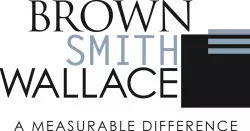In December, the IRS announced a one-year extension of the waiver of the eligibility rule for taxpayers, allowing certain automatic accounting method changes under the final tangible property regulations, known as the "repair regulations." The IRS also provided a transition rule.
Generally, a change to comply with the final repair regulations is a change in method of accounting. Rev. Proc. 2015-13 provides the general procedures for a taxpayer to obtain the automatic or non-automatic consent of the IRS to change a method of accounting. The automatic change procedures may not be utilized if the taxpayer has made or requested a change for the same item during any of the five tax years ending with the year of change. This rule, the IRS explained, generally precludes a taxpayer from using the automatic change procedures to change the treatment of the same item more than once within a five-year period.
In 2016, the IRS announced a temporary waiver of the five-year eligibility rule. The IRS took that action to help taxpayers transition to the final repair regulations.
Now, the IRS has extended this temporary waiver. Notice 2016-7 extends the eligibility rule waiver for one year to any tax year beginning before January 1, 2017, for taxpayers making certain automatic changes to utilize the final tangible property regulations under Code Sections 162(a) and 263(a) and for making certain automatic changes to depreciation and dispositions under Code Sec. 168. The IRS predicted that the extension and transition relief would ease the administrative expense and burden on taxpayers as they transition to the final repair regulations.
Additionally, the IRS provided a transition rule. The transition rule generally applies to certain pending requests for change in accounting method.
If you have any questions about the final repair regulations and the IRS's new announcement, please contact your tax advisor or Rob Haggerty, Partner, Tax Services, at 314.983.1311 or rhaggerty@bswllc.com.
The content of this article is intended to provide a general guide to the subject matter. Specialist advice should be sought about your specific circumstances.


